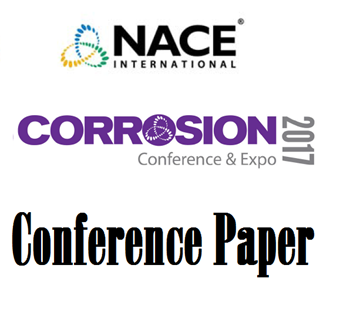Search
99016 CORROSION INHIBITOR TESTING AND SELECTION FOR E&P: A USER’S PERSPECTIVE
Also Purchased
Guidelines for Corrosion Inhibitor Selection for Oil and Gas Production
Product Number:
51317--8842-SG
ISBN:
8842 2017 CP
Publication Date:
2017
$20.00
10325 Testing Requirements of Corrosion Inhibitor Qualification for Pipeline Applications
Product Number:
51300-10325-SG
ISBN:
10325 2010 CP
Publication Date:
2010
$20.00
11062 Corrosion Inhibitor Efficiency Limits and Key Factors
Product Number:
51300-11062-SG
ISBN:
11062 2011 CP
Publication Date:
2011
$20.00




